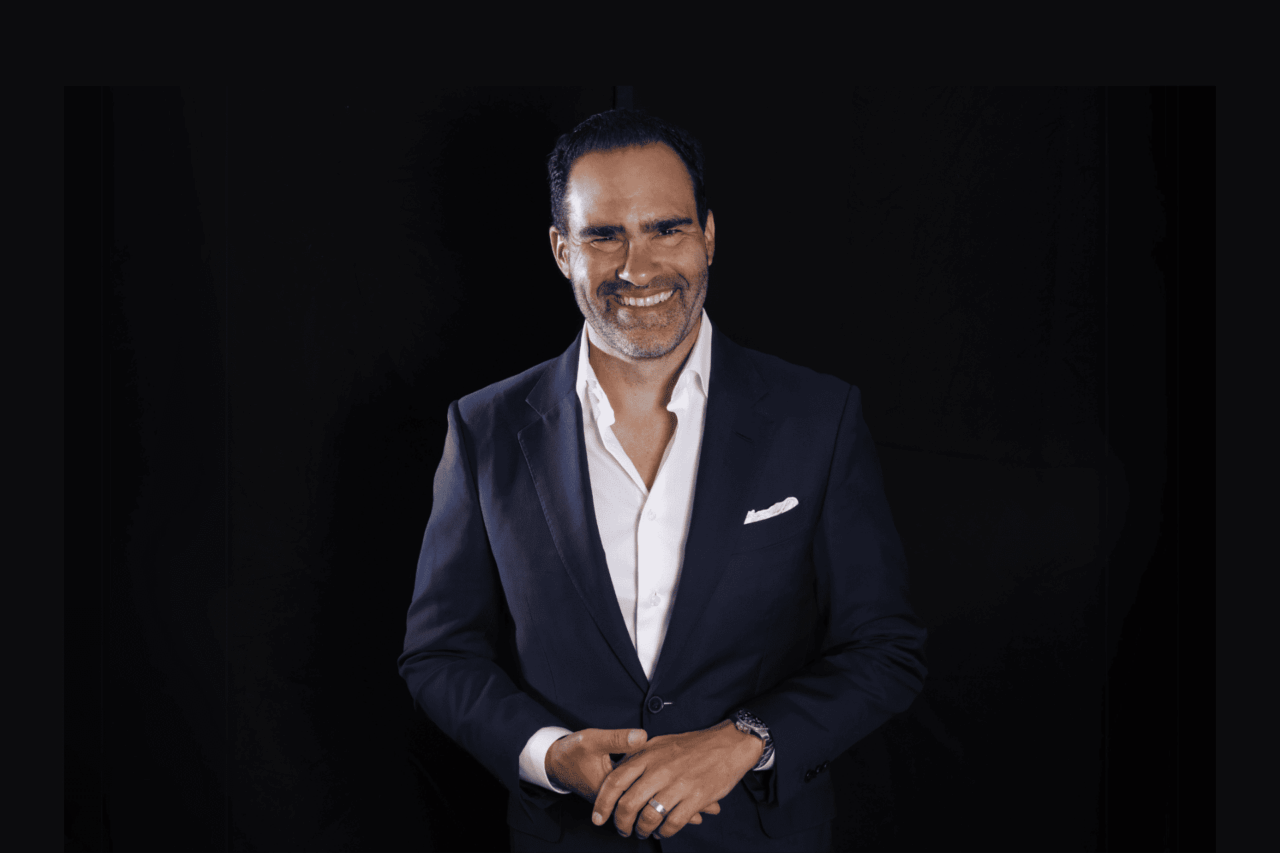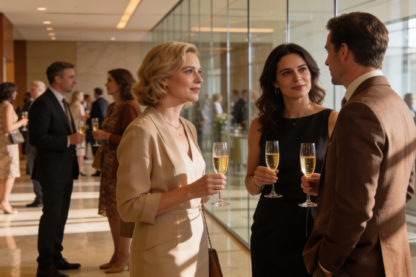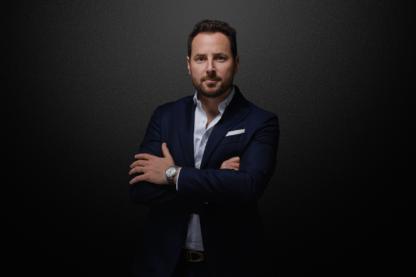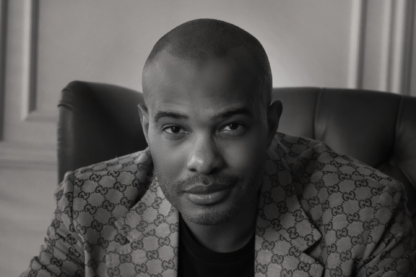In this exclusive interview, Alexander Chetchikov, President of the World Luxury Chamber of Commerce, sits down with one of the most influential voices in the global luxury industry—Professor Dr. Daniel André Langer. Recognized by The Economist as a true authority on luxury and celebrated by Robb Report as a visionary in brand strategy, Langer has been instrumental in shaping the future of luxury branding, customer experience, and emotional value creation. As CEO of Équité and a professor at both Pepperdine University and NYU, his insights have guided the transformation of some of the world’s most iconic brands. In this conversation, he reveals the secrets behind luxury’s emotional resonance, why brands fail or thrive, and what the next era of luxury will demand.
Alexander Chetchikov: You are widely recognized as one of the world’s top five luxury experts, referred to by The Economist as a “luxury authority” and by Robb Report as someone who “stands at the forefront of luxury innovation and is celebrated globally as a visionary in brand strategy, customer experience, and value creation.” How did this global recognition come about, and how does it influence your work today?
Daniel Langer: This recognition is the result of a journey that began with my doctoral thesis, where I had the privilege of decoding the hidden value drivers of luxury. The findings challenged conventional thinking and became the foundation for building and repositioning several billion-dollar brands. Over the years, I combined this academic foundation with leadership and advisory roles across Asia, Europe, the Middle East, and North America. This blend of research and real-world brand building gave me a perspective that is both strategic and deeply emotional. It taught me that luxury value is created through perception, trust, and the smallest of details. That understanding continues to shape everything I do, from advising CEOs and training sales teams to courtroom valuation and keynote presentations.
AC: As CEO of Équité, how do you approach transforming legacy luxury brands versus building brand equity for startups in today’s dynamic market?
DL: With legacy brands, the priority is to rediscover relevance while protecting the emotional core. Many of these brands have accumulated internal complexity and a disconnect with today’s clients. We begin with a rigorous audit to understand how the brand is actually perceived. Often, the external view is very different from internal beliefs. For startups, it is about building emotional equity from day one, defining a clear brand universe, establishing price integrity, and creating desirability from the first client interaction. In both cases, I ask the same question: what emotion does the brand own? If the answer is unclear, then the brand lacks direction.
AC: In your role as a professor at Pepperdine and NYU, what key shifts in luxury consumer behavior do you emphasize to your students that brands must understand to remain relevant?
DL: Luxury today is no longer about objects. It is about identity, meaning, and transformation. Younger generations, in particular, are seeking brands that reflect their values and beliefs. They want experiences that are personalized, inclusive, and aligned with their lifestyle. I teach my students that exclusivity is not just about price or access. It is about emotion, resonance, and the ability to make someone feel truly seen. Clients today want brands that listen, inspire, and elevate their lives in meaningful ways. Brands that fail to connect emotionally will quickly lose relevance, no matter how rich their history or how refined their craftsmanship.
AC: You’ve authored several best-selling books on luxury strategy. What core misconception about luxury branding do you find most common, even among seasoned executives?
DL: The most common misconception is that luxury is defined by high price and product quality alone. While both are important, they are only the starting point. True luxury is about desire, and desire is driven by emotional storytelling, symbolic value, and consistent experiences. Many executives still see luxury as a category rather than a mindset. They focus too much on product features and not enough on the emotional impression the brand leaves. A brand is not luxury because it says so. It is luxury because the client believes it is. That belief must be earned with every interaction.
AC: In your keynote speeches and masterclasses, you often cover the 4E of Luxury, The Art of Selling Luxury, pricing power, and brand disruption. Where do you see the future of luxury heading?
DL: The future of luxury is anchored in understanding the emotional key of the client. This is especially important when working with ultra-high-net-worth individuals, who are often approached as transactions rather than people. What clients truly want is to be understood, respected, and valued. Yet in nearly every training I lead, even senior professionals struggle to create that emotional connection. That is why my work focuses on transformation.
I share insights rooted in two decades of academic research into the psychology of luxury. I show how to unlock emotional resonance at scale and how to build trust through exceptional experiences. The 4E framework—Experience, Emotion, Exclusivity, and Engagement—offers a strategic foundation to drive desirability and pricing power.
Artificial intelligence can support this by uncovering patterns, predicting client preferences, and enabling more personalized service. It can empower teams to deliver more emotionally intelligent interactions. But technology must always serve the emotional core of the brand, never replace it. The luxury brands that succeed in the future will be the ones that remain deeply human while embracing digital tools with purpose.
AC: Having advised top-tier brands, CEOs, and CMOs and served as an advisor to VCs in high-stakes acquisitions and as a luxury court expert, how do you navigate the intersection of business strategy as well as business accountability in brand valuation, M&As, and legal cases?
DL: In the world of luxury, brand value is deeply emotional and often intangible. My role in these cases is to make the emotional tangible and the invisible measurable. Whether it is a brand valuation, a complex business challenge, a legal case, or a reputational issue, I apply the same level of rigor and strategic thinking I use in brand building.
I bring in client perception studies, competitive benchmarking, and forensic brand assessments to understand how value is created, protected, or diminished. It is about connecting brand strategy with accountability and making a strong, evidence-based argument, critical for any M&A project or court case where sometimes billions are at stake. These projects require both passion and precision, and I see them as an extension of my work in helping brands understand their true worth.
AC: You often emphasize the importance of brand audits. Why do you consider this one of the most critical tasks for luxury brands, and where do most audits fall short?
DL: Brand audits are essential to luxury success, but they are often either neglected or done at a surface level. Too many audits rely on internal opinions, lack client insights, and fail to deliver actionable outcomes. Luxury brands are particularly vulnerable to internal bias, where teams see the brand through their own lens instead of through the eyes of the client.
A meaningful audit must be brutally honest. It should uncover how the brand is actually experienced, how it compares emotionally with competitors, and where its storytelling succeeds or fails. We incorporate mystery shopping, emotional mapping, cultural analysis, and data-backed assessments to create a clear, actionable view. Only with this depth can a brand make the changes needed to stay relevant and compelling.
AC: You conduct luxury sales training around the world. What makes these trainings so essential, and what differentiates effective programs from those that fail?
DL: Luxury is sold through emotion, not logic. The most beautiful product means nothing if the client experience is flat or uninspired. That is why training is not optional. It is fundamental.
However, most traditional luxury training programs are either too generic or disconnected from real client expectations. The difference with my approach is that I combine brand storytelling with what I call storyselling. I teach teams to connect emotionally with clients, to listen deeply, and to create magic in the moment. We use real-world scenarios and practical frameworks. And we always link back to the brand’s emotional essence.
I have seen globally admired luxury brands fail in mystery shopping because the experience lacked warmth, attention, or meaning. A truly great training creates a shift in mindset and transforms every client interaction into an opportunity to build loyalty and desire. We apply the same approach to my online learning community, Équité Intelligence, that several luxury brands and many top-performing luxury professionals already use.
It is also critical to be able to emotionally connect with those I train, independent of where they are based and which cultural background they have. It helps me that I worked in lived in Europe, USA, Asia, and Africa, speak seven languages including Japanese, and I travel every year to more than 25 countries on every continent. One of the pieces of feedback I get regularly is my ability to create a space where people feel valued and have a safe space to challenge everything they knew about luxury. To me, being maximally thought-provoking and transformational is critical.
AC: Despite its prestige, the luxury market is facing increasing pressure. What are the main reasons for the current negative trend, and what should brands do to navigate these challenges?
DL: The luxury market is experiencing a reset. Economic uncertainty, rising interest rates, and a growing disconnect between client expectations and brand execution are creating headwinds. Many brands raised prices without increasing perceived value. At the same time, younger clients are looking for authenticity, purpose, and relevance. They are not impressed by status alone.
To move forward, brands must refocus. This is a time for clarity, not complacency. Brands need to revisit their emotional positioning, audit their client experience, and ensure that every touchpoint reinforces their story. Luxury must feel personal, considered, and human. The brands that double down on emotional connection and consistently deliver excellence will emerge stronger than ever.
Thank you, Professor Dr. Daniel André Langer, for sharing your expertise and visionary perspective on the evolving world of luxury.
Follow his journey:
LinkedIn – https://www.linkedin.com/in/drlanger/
Instagram – @drdaniellanger
Personal Website – daniellanger.digital
Company – equitebrands.com
Want to read more exclusives? Check out our news and insights: https://worldluxurychamber.com/insights-news/ & sign up for our newsletter here: https://worldluxurychamber.com/wlcc-community/





